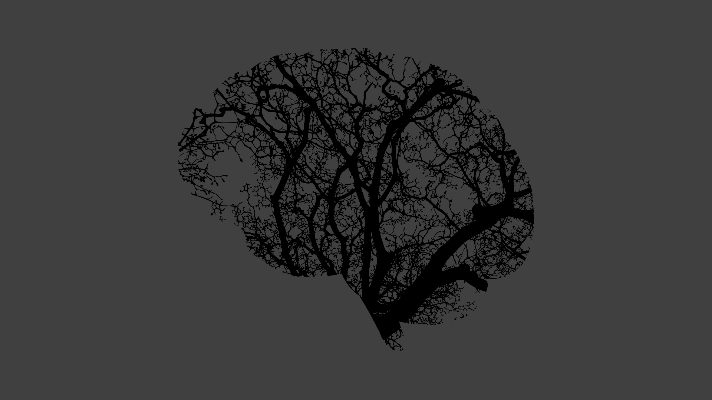For this post I have welcomed my friend Sophie to write a guest post. In this piece, Sophie shares her personal experience of mental illness during her PhD studies, including receiving her diagnosis and learning how to work healthily. Sophie welcomes questions/discussions about her experience and is happy to respond to any questions left respectfully in the comments below.
I knew a PhD would be hard, and I knew that poor mental health was rife in the graduate community; this is why it took me so long to realise that I was experiencing a bigger problem than work-related stress.
I had started my PhD 8 months prior and I was ready to change the world. I was going to get aNature paper and my supervisor and I were going to be famous – yeah right, but that’s what Ithought at the time. My lab work was going well and I was happy and confident. I had a stable homelife with my long-term partner and had just moved into my dream house. I was lucky, and life was perfect.
Except life wasn’t perfect; when I started my PhD in 2015 I’d already been struggling with my mental health for 15 years (since the age of 6 years old), and when I look back now, I don’t know how we ever kept it under wraps. My partner tried tirelessly to restrain my panicked outbursts whilst my parents gave me all the stability and love they could afford. However, one thing led to another and my mood swings became too much. Me and my partner went our separate ways and I fixated on my work to mask my pain. I also stopped eating.
I developed increasingly strange behaviour, which I won’t touch on here for the sake of our word count. I got weaker, but I couldn’t stop working. I stopped sleeping. I felt driven by a motor in my mind which would wind me up like an elastic band – and then I snapped. I was in the lab when I had a mental breakdown.
I’d like to say I took the decision to intercalate but I didn’t. I took a forced hiatus from my PhD studies so that I could learn to eat, sleep and regulate my mood again. I was fast-tracked to see a psychiatrist and after a thorough examination, I was diagnosed with Bipolar (II) disorder.
For those of you unfamiliar with Bipolar (II), it’s a moderate-to-severe mood disorder characterised by crippling lows and frightening highs, which sometimes mix (as mine do) into a strange and stormy ecstasy. Moods can be accompanied by racing thoughts and sometimes even physical pain – it sounds extreme doesn’t it? But when you’ve never known anything else, that’s how you assume everyone experiences the world. I assumed that I was experiencing the normal ups and downs of a PhD, perhaps a little work-related stress.
On reflection the diagnosis explained a lot. However, getting diagnosed was just the first step in returning to my studies. When I finally came back to university 5 months later, I had to learn to be a new person – I had to learn to see the world in a new and healthy way, in order to finish my PhD.
It’s taken me years to really understand my diagnosis, and to know what it means for my studies. I safeguard time to attend the medical appointments and meetings I need and I keep in close touch with my healthcare team. Sometimes I have to take time off for reasons that are hard to explain to my supervisor, and sometimes my productivity is irregular – it’s frustrating but this is my new ‘normal’, and I’m learning to make it work.
If I’d been diagnosed before starting my PhD, I don’t think I’d have risked attempting further study; so in a way I’m pleased with how things have turned out. Through my diagnosis I’ve learned that the secret to coping is flexibility, and that the secret to sanity is to be able to express yourself – which science doesn’t always allow; but this is why we have to change science. Perhaps the most important thing I’ve learned, is that a community of openness and honesty goes great lengths to help those in need, and that this is a culture we as scientists must support each other in creating.
Note: I now eat and sleep plenty, I work within reason and I have a social circle who support me dearly. I couldn’t have achieved this without the guidance and care of my dedicated case manager who I will most certainly be referencing in the acknowledgements of my thesis 🙂
Author Bio:
 Sophie is a final year PhD student studying diet and gene interactions in energy metabolism. She is a keen science communicator and an increasingly active part of the academic mental health awareness community. Away from research, Sophie likes to unwind by creating amateur artwork and writing original music.
Sophie is a final year PhD student studying diet and gene interactions in energy metabolism. She is a keen science communicator and an increasingly active part of the academic mental health awareness community. Away from research, Sophie likes to unwind by creating amateur artwork and writing original music.

I know the felling somewhat as a science student with a MDD. Something I found difficult when I’ve been depressed is trying to reach out to my friends. Most of them are arts students and whenever I’ve tried to voce how bad I’ve been felling they always nearly respond with “with at least your going to get a job” and that’s the end of the matter.
LikeLike
Thank you for sharing, I like it
LikeLike